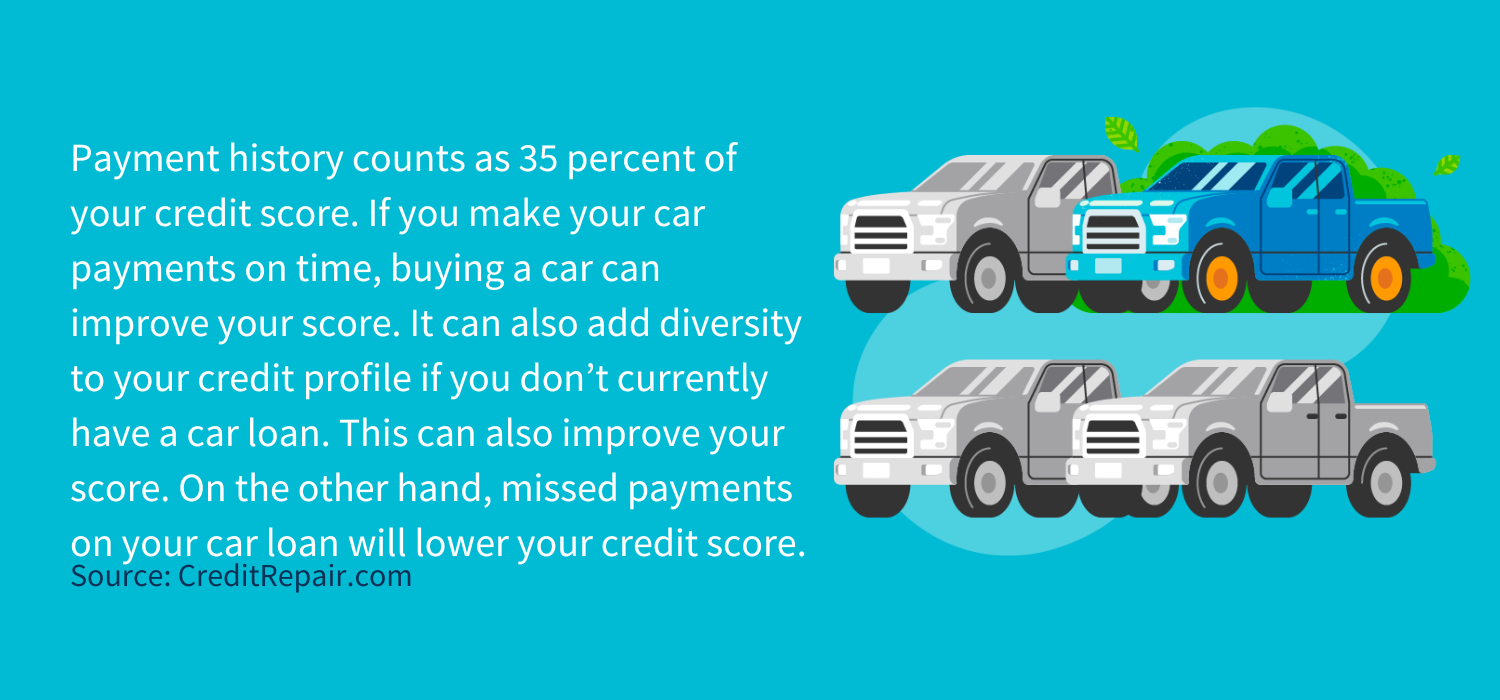
Disclosure regarding our editorial content standards.
So it’s time for a new car. You’ve been comparing prices, makes and models, and the features you want. While you debate if it’s worth it to pay more for leather seats or a sunroof, you’re probably going to head to a dealership and take a few cars you’re considering out for a test drive. And somewhere along the way, you’ll have to fill out an application that will prompt a credit check.
Before you fill out any forms, it’s a good idea to make sure you understand the effect a credit check can have on your credit scores, especially because those scores will have an impact on the terms and conditions that come with auto loan financing.
How shopping for an auto loan can affect your credit
Shopping around for the best rate on a new car loan won’t usually affect your credit score. Some people have concerns about getting multiple lender quotes because too many inquiries can hurt your credit.
According to the Consumer Financial Protection Bureau, however, you can apply for several loans within a short time and the credit bureaus will count them as a single inquiry. Just complete all your applications in one 14-day period and your credit score should remain steady.
You can get your rate from some lenders without a hard credit pull. These “soft” credit pulls don’t count against your score. A hard pull for an auto loan will have an impact on your credit score, but it will be minimal.
How buying a car can impact your credit

Payment history counts as 35 percent of your credit score. If you make your car payments on time, buying a car can improve your score. It can also add diversity to your credit profile if you don’t currently have a car loan. This can also improve your score. On the other hand, missed payments on your car loan will lower your credit score.
Keep in mind that if you space out your shopping trips over a wider period, all the credit pulls (meaning hard inquiries) can have a negative effect. If you aren’t sure about buying a car in one 14-day period, wait around six months to try again so the hard inquiries don’t stack up.
If you want to see what kind of financing you can get from a dealer, depending on your credit, your request could be submitted to multiple lenders in order to find the best deal for your situation, according to Experian. In each case, the prospective lender may do a credit pull. Note that this may also apply to online auto dealerships.
How to get your credit ready to buy a car
Good credit usually translates to lower interest rates and better terms on your car loan, which means you could save thousands of dollars over the life of the loan. First, check your credit report to see where you stand. Dispute incorrect information that could be lowering your score. You should also bring all your bills up to date and continue to make on-time payments. Finally, if you carry a credit card balance, paying it down to less than 30 percent of your available credit can raise your score.
Lenders consider a score of 670 or higher to be good credit, while scores of 800 and higher fall into the exceptional category.
If you need help with your credit before you buy a car, CreditRepair.com has the valuable resources you need to improve your credit and get your dream ride.
Note: The information provided on CreditRepair.com does not, and is not intended to, act as legal, financial or credit advice; instead, it is for general informational purposes only.
Questions about credit repair?
Chat with an expert: 1-800-255-0263






